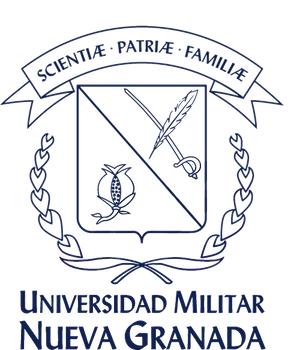Relación e influencia de los valores éticos en la educación
Resumen
En este estudio se analiza la relación e influencia de los valores éticos en la educación. La investigación presenta la realidad con ciertos enfoques que tienden y nos motivan a reflexionar con el fin de incrementar el desarrollo y el mejoramiento integral en la vida a todo nivel y que pueden ser implementados fácilmente en la educación.
Descargas
Referencias bibliográficas
• Aristotle. (2000). Nicomachean ethics (R. Crips, Trans.). Cambridge, England: Cambridge University Press.
• Bennett, W. (1993). The book of virtues. New York: Simon and Schuster.
• Breeden, L. (2001). Ethics for making the right choice. The Education Digest, 67, 22-23.
• Brooks, B. D. (1997). The case for character education. Northridge, CA: Studio 4 Productions.
• Carr, D., & Steutel, J. (1999). Virtue ethics and moral education. New York: Routledge.
• Chávez, G. (1999). Laboratorio de ética y moral (Ethics and moral laboratory). Caracas, Venezuela: ENAHP.
• Conroy, M. A. (2000). 101 Ways to integrate personal development into core curriculum. Lanham, MD: University Press of America.
• Cummings, W. K., Tatto, M. T., & Hawkins, J. (2001). Values education for dynamic societies: Individualism or collectivism. Hong Kong, China: Comparative Education Research Centre - University of Hong Kong.
• Cuneo, T. D., (1999). Capacities for goodness: A defense of neo-Aristotelian moral realism, Ph.D. Fordham University.
• Dalai Lama, & Cutler, H. (1998). The art of happiness. New York: Riverhead books.
• Dalai Lama (1999). Ethics for the new millenium. New York: Riverhead books.
• Danto, A. C. (1972). Mysticism and morality. New York: Basic Books.
• De Mello, A (1993). Un minuto para el absurdo. Santander, España: Sal Térrae.
• De Mello, A (1988). Autoliberación interior. Buenos aires, Argentina: Lumen.
• De Roche, Edward F., & Williams, Mary M. (2001). Character education. Lanham, MD: The Scarecrow Press.
• Devettere, R. J. (2002). Introduction to virtue ethics. Washington, D.C.: Georgetown University Press.
• Elkind, D., & Sweet, F. (1997). The Socratic approach to character education. Educational Leadership, 54, 56-59.
• Fisher, J. (2003). Surface and deep approaches to business ethics. Leadership & Organization Development Journal, 24, 96-101.
• Frankl, V. E. (1984). Man’s search for meaning. New York: Washington Square Press.
• Gadner, J. W. (1993). On Leadership. New York: Free Press.
• Halstead, J. M., & Taylor, M. J. (1996). Values in education and education in values. Bristol, PA: The Falmer Press.
• Hitt, W. (1996). A Global Ethic. Columbus, OH: Battelle Press.
• Holmes, R. L. (2003). Basic Moral Philosophy. Belmont, CA: Thomson Wadsworth.
• Kagan, S. (2001). Teaching for Character and Community. Educational Leadership, 59 (2), 50-55.
• Kane R. (1994). Through the Moral Maze, searching for absolute values in a pluralistic world. New York: Paragon House.
• Kidder, R. (1994). Shared values for a troubled world. San Francisco: Josey- Bass Publishers.
• Lickona, T. (1996a). Eleven Principles of Effective Character Education. Journal of Moral Education. 25(1): 93-100.
• Lockwood, A. (1997). Character Education. Thousand Oaks, CA.: Corwin Press, Inc.
• Manzanilla, Orestes (2005). Gerencia de la participación ciudadana. Una visión integralista. Caracas, Venezuela: Editorial Panapo.
• Mercader, V. (1998). Gerencia de la vida. Caracas, Venezuela: Torvic
• Mercader, V. (1999). Crisis versus Desarrollo. Caracas, Venezuela: Torvic
• Mercader, V. (2003). Emerging Ethical Values for Education. Presented at the Civic Education International Conference, 2003, New Orleans, LA.
• Mercader, V. (2004). Influence of Ethical Values in life and at work. Presented at the Civic Education Research Conference, 2004, Reno, NV.
• Mercader, V. (2006). Ethical Values, Selection and Comparison among Different Authors. Presented at the Civic Education Conference, Research and Practice, 2006, Orlando, FL.
• Mercader, V. (2006). A study of ethical values of college students. Ed.D. University of South Florida.
• Nair, K. (1994). A higher standard of leadership: lessons from the life of Ghandi. San Francisco: Berrett-Koehler Publishers.
• Peterson, C., & Seligman, M. (2004). Character Strengths and Virtues. Oxford University Press.
• Plato (1968). Republic. (A. Bloom, trans.). New York: Basic books.
• Quinn, T. (1997). Weaving Values into the School Day. Principal, 76, 3; 55
• Richey, J. L. (2000). Magical power and moral law in early Chinese thought. Ph.D Graduate Theological Union.
• Rodríquez, José Ramón. (1996). A review of ethics and educational leadership: A philosophical statement. Ed.D. Northern Arizona
University.
• Rokeach, M. (1973). The Nature of Human Values. New York: The Free Press.
• Sappir, S. (1998). Global ethics in a high school curriculum. Educational Leadership, 55, 80-82.
• Spinoza (2000). Editor D.D. Runes). The ethics of Spinoza, The road to inner freedom. New York: Citadel Press Books.
• Schwartz, S.H. (1994) Are there universal aspects in the structure and content of human values? Journal of Social Issues, 50 (4), 19-45.
• Terkel, S. N. (1992). Ethics. New York: Lodestar Books.
• Vega, J.M. (2002). Rumbo a la cima. México: Ediciones Selectas Diamante
• Vokey, D. J. (1998). Reasons of the heart: Moral objectivity and moral education. Ph.D University of Toronto (Canada).
• Wilson, J. Q. (1993). The Moral Sense. New York: The Free Press.
• Víctor Mercader Center for Development and Ethical Values. P.O. Box 47895, Tampa, Fl. 33647, USA mercader@usa.netPh:813-5036555











